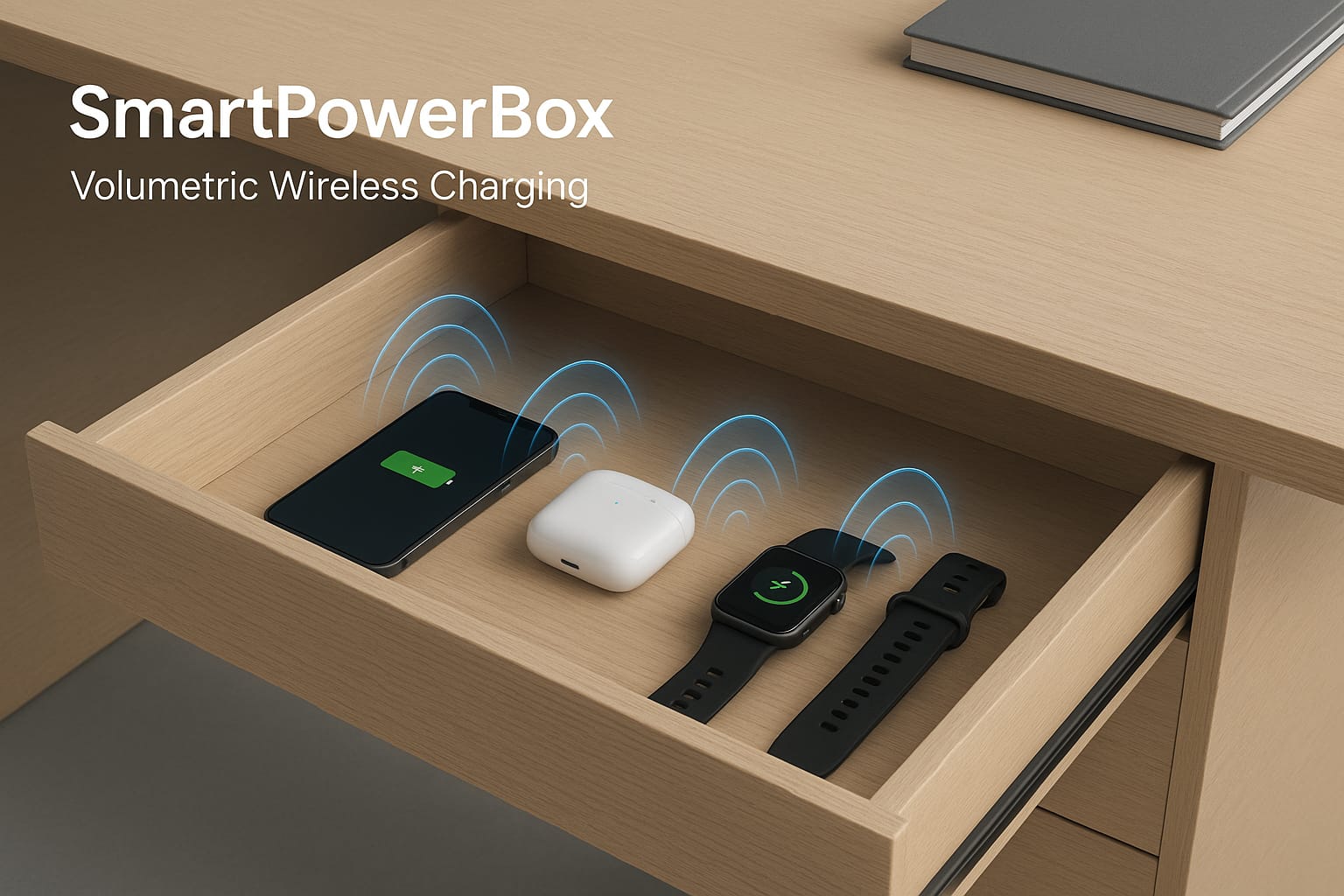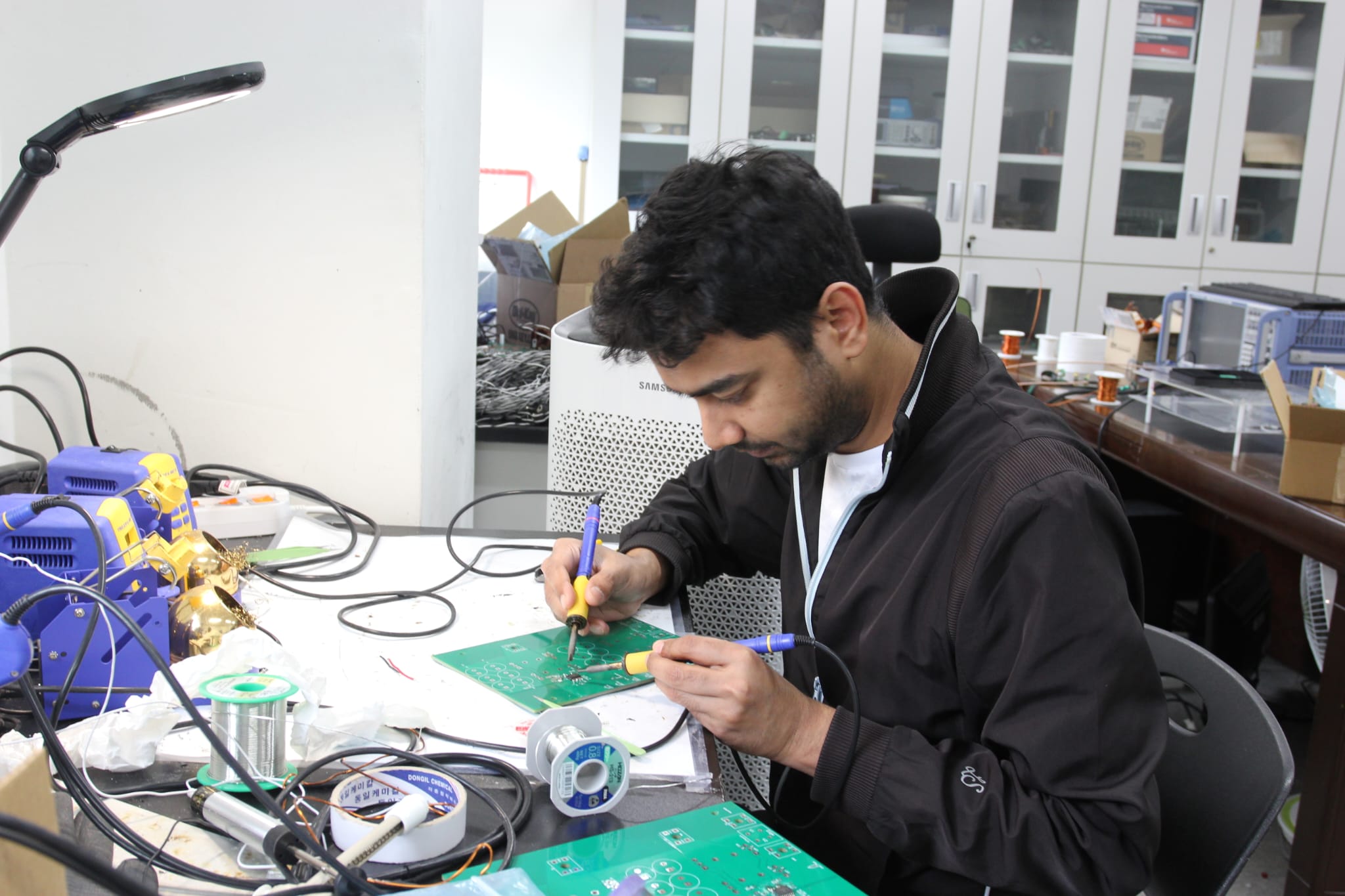News Flash


MYMENSINGH, Nov 17, 2025 (BSS) - Dr. Saidul Alam Chowdhury, a Bangladeshi researcher and research fellow at the University of Auckland, New Zealand, has pioneered a cutting-edge 3D wireless charging technology, known as the "Smart Power Box."
This innovative platform can charge multiple electronic devices simultaneously without the need for precise placement, offering a major leap forward from current 2D wireless charging solutions.
Dr. Saidul's breakthrough, which has been funded with a competitive NZD 114,000 grant from the Warwick & Judy Smith Engineering Endowment Fund, aims to revolutionize the way devices are powered.
Details of his ongoing research have also been published on the official website of the University of Auckland.

Unlike conventional wireless chargers, which require exact positioning of devices on a flat surface, the Smart Power Box enables charging within a three-dimensional space-meaning devices can be charged from any angle or orientation.
The technology employs an advanced resonant coil system, intelligent inverter control, and sophisticated temperature and frequency optimization. It also incorporates a multi-device detection system, ensuring multiple devices can be powered simultaneously, regardless of their position.
The design complies with electromagnetic field (EMF) safety standards, addressing one of the common concerns in wireless power transfer.
In an interview on November 16, Dr. Saidul shared his motivation behind the innovation, which stemmed from the common frustrations people face with tangled charging cables and multiple adapters at home or in the workplace.
"I wanted to create a platform that works much like Wi-Fi-where you don't need to place your device in a precise location. It will charge from any orientation. This concept led to the Smart Power Box project," Dr. Saidul explained.
The development of the technology began with a small prototype before Dr. Saidul formed a research team at the University of Auckland's laboratory to further refine the system's model, coil design, and performance.
As the research progresses, the technology is steadily moving toward becoming a practical, usable product.
However, the path to commercial viability has not been without its challenges. Dr. Saidul highlighted several key hurdles, including extending the effective charging distance, ensuring energy efficiency, reducing electromagnetic interference (EMI), maintaining safety standards, and lowering production costs.
"These are the core research objectives we are tackling," he added.
Looking ahead, Dr. Saidul is optimistic about the potential of the Smart Power Box in both domestic and industrial applications.
He plans to collaborate with industry partners to bring the technology to market and believes that it has the potential to have a significant impact worldwide.
In sharing advice for young researchers, Dr. Saidul emphasized the importance of patience, curiosity, and perseverance. "Research begins with identifying a problem and finding a solution. Consistent effort, patience, and an unwavering belief in your ideas can help any young researcher make significant breakthroughs," he said.
Dr. Md. Salahuddin Mina, Professor of the Department of Physics at Khulna University, praised Dr. Saidul's innovation, calling it a "technological breakthrough" that could dramatically improve everyday life.
"This research is of international standard and has the potential to produce practical solutions that will benefit society," Professor Mina stated.
Dr. Saidul Alam Chowdhury, originally from Chattogram, Bangladesh, completed his Bachelor's degree in Electrical and Electronic Engineering from Chittagong University of Engineering and Technology (CUET) in 2017.
He went on to receive a full scholarship for his Master's and PhD at Incheon National University in South Korea, where he was honored with the Excellent Research Award.
Currently, he leads the Innovative Wireless Power Research Lab at the University of Auckland and holds two U.S. patents. His research contributions have been widely recognized, with eight papers published in prestigious IEEE journals.
As the Smart Power Box technology advances, Dr. Saidul's work stands as a promising example of how innovative research can transform everyday experiences and contribute to a more connected and efficient future.